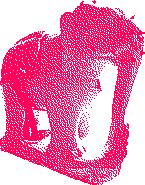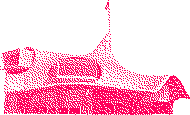



English document
Studying at ESAL
Year I
This year prepares students for the teaching project of the school.The teaching is diverse : history of art, writing and art thinking, graphic design, video, photography, drawing, painting, colour and 3-D studies.
Year 2
The basic teaching of the first year gives place to a methodological approach. The lessons, modules, studios, and workshops allow for an assessment of the students’ committment. A compulsory internship is programmed for the second part of the year. The choice of option, art or communication is made in the second year at the beginning of the school year.
Year 3
In the third year of the course students pass the DNAP. The choice of the option, art or communication determines the teaching that will be pursued.
Year 4
This year the students begin their dissertation with the underlying research this entails for the 5th year diploma project by developing art work and technical prowess in depth. A compulsory internship and the possibility of a term in another country are specific to this 4th year.
Year 5
The 5th year is dedicated to the end of course diploma, DNSEP. The exam consists of the exhibition of plastic art work together with an oral presentation in front of a national jury. The dissertation of the DNSEP is to be considered as an implement serving the thought process, the way of working and the development of the plastic project of art school students.
Options and Diplomas
The ESAL, which comes under the ruling of the ministry of Culture delivers the following national diplomas : the DNA and the DNSEP, the latter being a Masters’ degree.
Multiple Dispositives
DNA Art
DNSEP Art, multiple dispositives
The art option is the place of invention, creation, and artistic research in all its various, multiple and singular forms. It relies on artistic practices from the most traditional (etching, drawing, painting, photography) to the most innovative (video, sound, installation, computer art, Web T.V…)
Graphic arts and languages
DNA Communication
DNSEP Communication, Graphic arts and languages
The communication option comes into play in the visual quality of our everyday environment. Students express themselves in the field of creation of fixed or animated images, graphic systems, narrative writing such as cinema, animation, comics…
Teaching staff
27 artists, research staff and practising artists
Studios : animation, digital images, cinema, drawing, writing, edition, etching, hypermedia, computer graphics, multimedia, interactive installations, painting, photography, scenography, video, 3-D studies, film set, ARS (Sound research workshop), typography.
Research
Institut Page, Research laboratory for graphics, publishing, and textual studies.
Sound Workshop
LabVies (Interactivity / Volume /Scenographic Space)
Typography La Messine
Postgraduate program Writing at Work: a year of research on contemporary publishing.